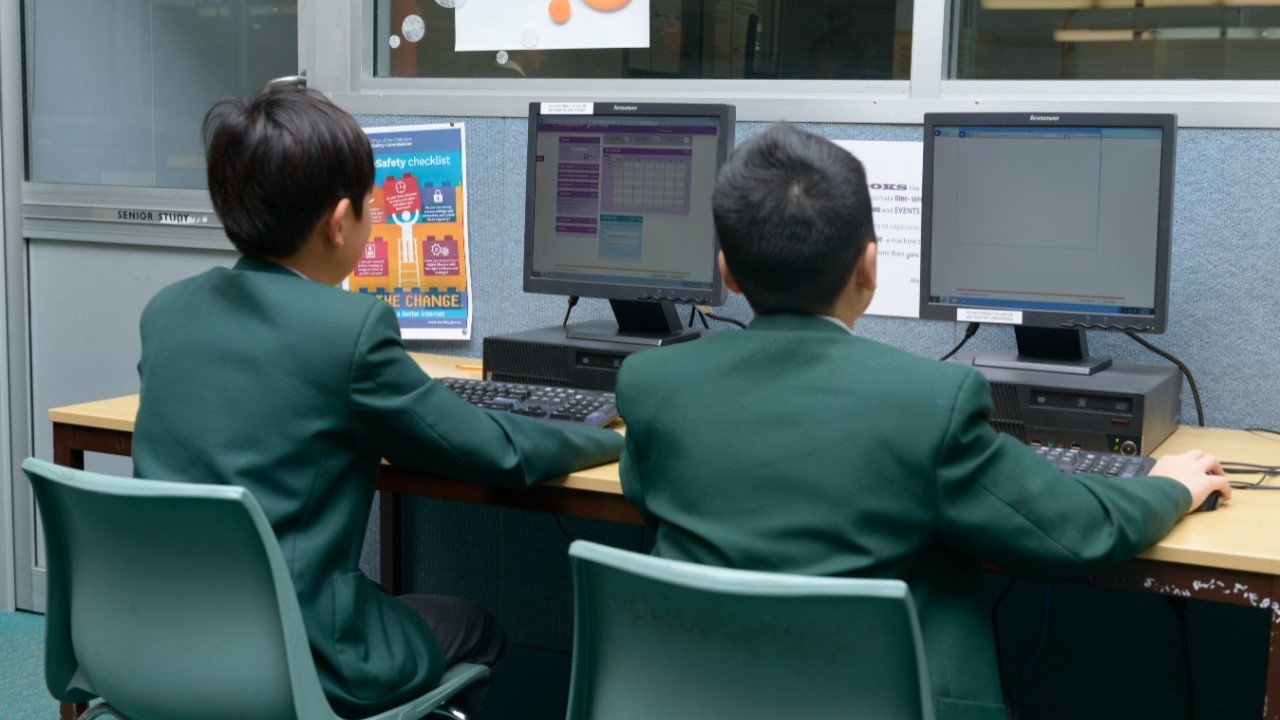
Technological and applied studies (TAS) is mandatory for all students in Year 7 and 8. Students can also select from a range of elective TAS subjects.
In TAS, students develop knowledge, understanding and skills through a design and production process using a range of tools, materials and techniques in theory and practical lessons.
The continuum of technology learning is:
- mandated from Kindergarten to Year 8 through Science and Technology K-6 and Technology Mandatory Years 7-8 syllabuses
- based on students becoming increasingly sophisticated in their ability to apply knowledge, skills and understanding to design and produce solutions
- optional for student specialisation in high school through a range of syllabuses addressing particular technologies and aspects of design.
The mission of the Technology faculty is to offer meaningful and productive learning experiences to prepare students to function as technologists in a variety of technical specialties. The department values the integration of academic knowledge with hands-on technical skills, which is achieved by emphasising the application technological principles in relation to problem solving.
Technology education at James Ruse Agricultural High School responds to the recognition that students need logical, creative, problem solving abilities, as well as an ability to manipulate tools and machines to be able to take their appropriate position in tertiary education and a changing social structure.
The Technology curriculum is based around the following principles:
- Applying technological knowledge and processes to real world experiences using up-to-date resources
- Open-ended, problem-based design activities
- Designing, developing, and utilising technological systems
- Cognitive, manipulative, and affective learning strategies
- Working individually as well as in a team to solve problems.
Courses for Stages 4 and 5 (Years 7 to 10)
Design & Technology

Students focus on the study of technology through design, the course provides opportunities for them to develop an understanding of a range of technologies, their applications and impact on the quality of life. Design projects are selected from the following prescribed contexts:
- Agriculture
- The built environment
- Clothing and accessories
- Engineering systems
- Food
- Health and welfare
- Information communications
- Leisure and lifestyle
- Manufacturing
- Transport and distribution.
Computer technology is to be integrated into at least 50 hours of the course. Each design project must use the design process and develop the following skills:
- Designing
- Making
- Evaluating
- Communicating
- Marketing
- Managing
Course for Stage 6
Software Engineering Course (HSC Course)
The study of Software Engineering enables students to develop an understanding of software engineering as a facet of computer science. Students have the opportunity to develop knowledge and understanding of software engineering, hardware and software integration, and the development, implementation and evaluation of computer programs. They focus on a systematic approach to problem-solving when designing and developing creative software solutions.
Software Engineering promotes a deeper understanding of fundamental concepts, programming languages and innovative technologies, leading to greater flexibility when developing software solutions. Students perform project work and apply their knowledge and skills in: programming fundamentals, the object-oriented paradigm, programming mechatronics, secure software architecture, programming for the web and software automation, and use the acquired knowledge and skills to develop a software engineering project. Project work enables students to collaborate on problems and develop team and communication skills that are highly valued in the industry.
Preliminary course structure and requirements (120 hours)
provides students with opportunities to develop and apply an understanding of the fundamental elements involved in creating software.
| Preliminary | Indicative hours |
| Programming Fundamentals | 40 |
| The Object-Oriented Paradigm | 40 |
| Programming Mechatronics | 40 |
HSC course structure and requirements (120 hours)
provides students with opportunities to extend their knowledge, understanding and skills in the development of software. A major software engineering project provides students with the opportunity to further develop project management skills.
| HSC | Indicative Hours |
| Secure Software Architecture | 30 |
| Programming for the Web | 30 |
| Software Automation | 30 |
| Software Engineering Project | 30 |
